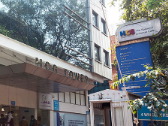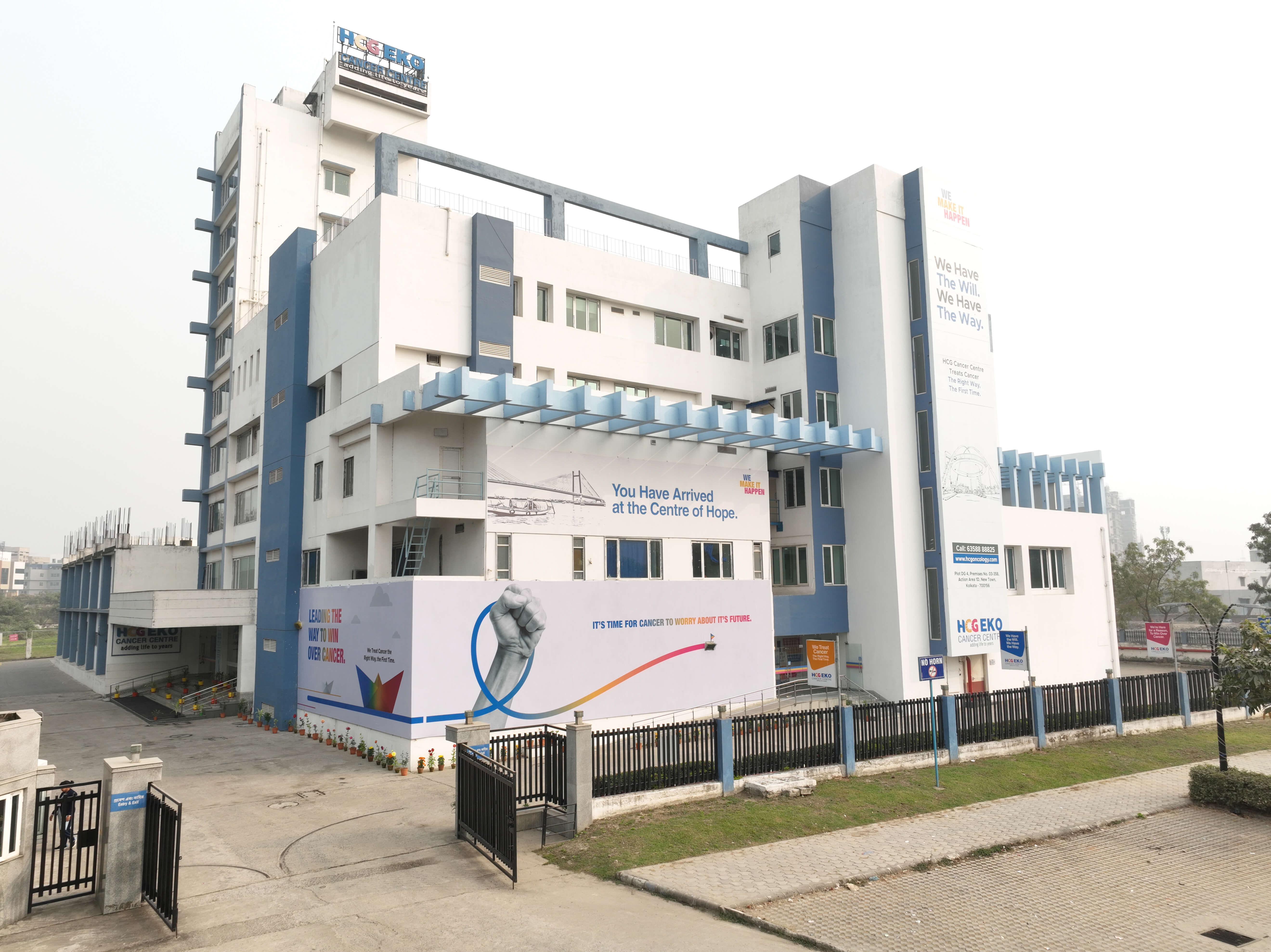OVERVIEW
Chimeric Antigen Receptor (CAR) T-cell therapy is an advanced cancer therapy for managing various types of cancer.
The technique involves obtaining the T-cells from the blood of the patients, altering them in the laboratory, and infusing them into the body of patients.
The infused T-cell then identifies and kills the cancer cells. CAR T-cell therapy is recommended to use malignant conditions like multiple myeloma, lymphoma, and certain forms of leukemia.
What is CAR T-Cell Therapy?
The immune system is the primary defense system against the abnormal cells present in the body. The immune system detects and kills cancer cells. However, through certain mechanisms, cancer cells evade the immune system, proliferate, and cause cancer.
CAR T-cell therapy, or cellular therapy, involves altering the genetic expression of the T-cells and making them more potent against cancer cells. The treatment is used when the patients do not respond to other standard treatments or when the cancer recurs.
The entire CAR T-cell therapy may take about 90 days.
How does CAR T-Cell Therapy Work?
There are various steps in the CAR T-cell procedure. These include:
Collecting the T-Cells
The patients undergo a process known as leukapheresis. During this process, the patient's blood cells are collected with the help of an apheresis machine. The doctor inserts two intravenous lines into the patient’s body. One line carries the blood from the patient to the machine. From the collected blood, T-cells (white blood cells) are separated from other components. The remaining blood components and fluid are sent back into the patient's circulatory system through another line with the help of the same machine. The procedure is usually completed in 2 to 3 hours.
Making the CAR T-Cells.
The separated T-cells are then sent to the laboratory, where the technicians and molecular biologists add a gene encoding a specific chimeric antigen receptor (CAR). The cells are then allowed to grow and multiply for several weeks in the laboratory.
Infusing the CAR T-Cells
Once enough CAR T-cells are grown, they are intravenously introduced into the patient’s body. In some cases, the patient may be treated with chemotherapy before CAR T-cell therapy, and in order to bring down the number of healthy T-cells in the body. This helps create more space for CAR T-cells to grow and function efficiently. CAR T-cells are carefully engineered to recognize a specific antigen (protein structure) present on cancer cells. When infused into the body, CAR T-cells bind to the antigen, multiply rapidly, and launch a targeted attack against cancer cells.
Advantages of CAR T-Cell Therapy
CAR T-cell therapy benefits patients in multiple ways. The following are the different advantages of CAR T-cell therapy:
Highly Targeted
CAR T-cell therapy is highly targeted. The gene is added to the T-cell based on the type of antigen present in the cancer cell, and CAR T-cells developed so precisely target cancer cells to destroy them.
Potent Anti-Tumor Activity
Studies have reported that CAR T-cell therapy has potent anti-tumor activity. These cells are developed specifically to target the cancer cells in a specific patient, so they are highly active against those cells.
Long-Lasting Effects
CAR T-cells remain in the patient’s body for a long time after the infusion. These cells may identify and kill cancer cells even when there is a relapse. In some cases, patients undergoing blood cancer treatment with CAR T-cell therapy can achieve long-term remissions.
Adaptable
CAR T-cell therapy is adaptable in terms of both safety and efficacy. Its efficacy is due to specific targeting potential and potent anti-tumor activity. In addition, as the T-cells are obtained from the patients, infusing them back has minimal side effects.
Single Treatment
In contrast to other cancer treatment options, like chemotherapy or radiation therapy, CAR T-cell therapy usually requires a single treatment, which is effective for a long period.
Potential for Combination Therapies
CAR T-cell therapy may also be combined with other treatments, such as chemotherapy or radiation therapy, to improve the overall effectiveness of the treatment.
Promising Results in Clinical Trials
Several clinical trials have been done to evaluate the efficacy and safety of CAR T-cell therapy. The results suggest that it is safe and effective in various cancers. After evaluating their safety and efficacy, the United States Food and Drug Administration has approved several CAR T-cell therapies.
FDA-Approved CAR T-cell Therapies for Blood Cancers
The following are the different FDA-approved CAR T-cell therapies:
ABECMA® (idecabtagene vicleucel)
This CAR T-cell therapy is approved for treating patients with multiple myeloma who are nonresponsive to at least four other treatments.
BREYANZI® (lisocabtagene maraleucel)
This CAR T-cell treatment is used to treat patients with certain large B-cell lymphoma that are unresponsive to at least one type of systemic therapy. The drug is also used to treat chronic lymphocytic leukemia.
CARVYKTITM (ciltacabtagene autoleucel)
This CAR T-cell treatment is recommended to treat refractory or relapsed multiple myeloma in adult patients. It detects and kills cells that have B-cell maturation antigen.
KYMRIAHTM (tisagenlecleucel)
This CAR T-cell treatment is indicated for treating refractory or relapsed follicular lymphoma in patients who have undergone at least two lines of therapy. It is also used for treating acute lymphoblastic leukemia in patients aged up to 25 years.
TECARTUSTM (brexucabtagene autoleucel)
It is a cell-based gene therapy medication that treats relapsed or refractory acute lymphoblastic leukemia and mantle cell lymphoma.
YESCARTATM (axicabtagene ciloleucel)
This CAR T-cell treatment is used to treat large B-cell lymphoma in patients who have not shown desired response to conventional treatment or have had a relapse. The drug is also used to treat follicular lymphoma.
Limitations of CAR T-Cell Therapy
While CAR T-cell therapy is a groundbreaking treatment approach for blood cancers, it is associated with a few limitations that are being studied extensively to optimize this treatment and make it one of the most effective treatment approaches for blood cancers.
The following are the different limitations associated with CAR T-cell therapy:
- The remission achieved through CAR T-cell therapy may not be durable. For instance, patients who achieve remission within one month of CD19 CAR T-cell therapy may relapse within the first year of treatment.
- CAR T-cell therapies may cause severe toxicity, and therefore it should be administered only in specialized hospital settings.
- At this moment, only a few specialized facilities manufacture CAT T-cell therapy medications, and therefore, its timely availability may be a challenge.
CAR T-Cell Therapy Department at HCG
HCG Cancer Centre, the best cancer hospital in India, offers the highest quality services for the diagnosis and management of several types of cancer.
The hematology and bone marrow transplantation department of HCG offers CAR T-cell therapies for blood cancer patients who have exhausted conventional treatments.
At this moment, CAR T-cell treatment is available in 2 of the 22 comprehensive cancer hospitals of HCG Network:

HCG Cancer Centre, Bangalore
The hemato oncology and bone marrow transplantation department at HCG Cancer Centre in Bangalore is made capable of treating certain blood cancer cases with the path-breaking CAR T-cell therapies.
HCG EKO Cancer Centre, Kolkata
HCG EKO Cancer Centre has a full-fledged hemato oncology and bone marrow transplantation department, which allows the treatment of specific blood malignancies with new-age CAR T-cell therapies.
Why choose HCG for CAR T-Cell therapy?
CAR T-cell treatment is an advanced and complex treatment modality, and its administration needs utmost attention and care. HCG Cancer Centre has all the facilities required to deliver CAR T-cell treatment. It also has specialists who have received extensive training and have vast experience in the administration of CAR T-cell treatment for various types of blood cancer.
